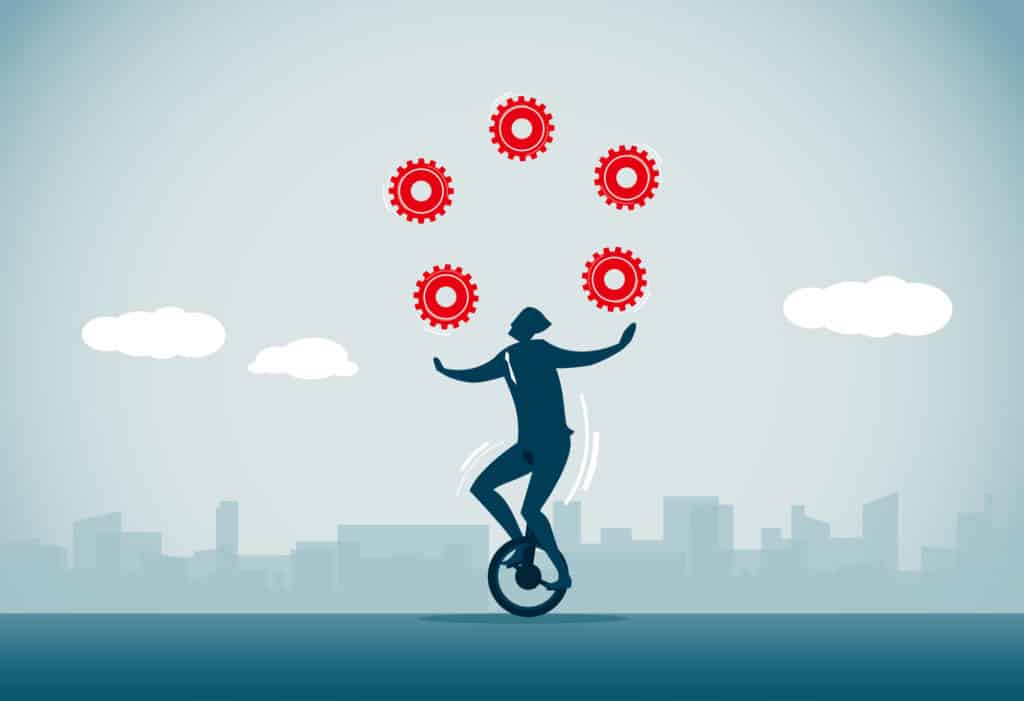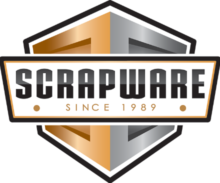Agility: The ability to move quickly and easily in response to change or challenge.
The word may conjure up images of a football player, soccer star or tennis champion. The concept of agility, however, is an important one to apply to business enterprises today, especially given the unprecedented challenges of the past year. The year 2020 revealed the necessity of examining organizational agility. It also accelerated businesses’ actions needed to be prepared for the future.

Recycling companies, like other businesses, had to adapt to disruptions from the global pandemic and resulting changes in the marketplace.
Agility as a business model is not new. Organizations like the Business Agility Institute (BAI) have been around for a number of years to share resources and ideas to help businesses use agility to be as competitive as possible. The term was used as early as the 1960s by the US Army. In the 1990s, a group of major manufacturers collaborated at Lehigh University to form “The Agile Group,” and the concept took off from there. Industry experts define business agility as the ability to adapt to market, social or other changes through the use of technology, adopting systems that create agile organizational processes. This means that the technological changes put in place are not static. Rather, they empower the organization to continue to react quickly to unpredictable changes.
Implementing business agility usually involves the use of industry-specific software. This is because digital systems are receptive to change and digital solutions can provide a business the data necessary to make good decisions. Using data to drive decisions and not relying on “gut instincts” has been proven to lead to more successful decision making. The digital systems put in place help businesses implement those decisions.
Industry statistics back up this trend. The marketing and enterprise management company Impact assembled these statistics last year:
- Some 87 percent of companies believe digital transformation and business agility provide a competitive business opportunity.
- Digitally “mature” companies are 23 percent more profitable than their less mature peers.
- The cost savings as a result of improved business agility are estimated to be between 20 to 30 percent.
- In North America, about 60 percent of businesses use cloud platforms, a five times jump from five years ago.
One component of technology enhancing agility is what industry experts call “the internet of things.” This term refers to items which previously may not have employed technology, but which now utilize technology to enable data collection and communication. Examples would be cameras which can digitally send pictures and containers with embedded GPS devices utilized so their exact location can always be known. The internet of things allows an organization to expand and improve their service and business processes with enhanced data and communication.
All businesses have specific practices they can improve with industry-specific software to help strengthen their agility. How agile is your recycling business?
For scrap metal recycling, here are some of the questions that can be explored to determine whether a competitive advantage can be obtained with the help of technology.
1-Do you rely solely on paper for recordkeeping, invoices, receipts and other documents?
2-Do your vendors and consumers still have to physically sign documents or can they do so electronically?
3-Do you know where all your trucks and containers are located and can you optimize their routes and placement with technology?
4-Can your back office employees and traders easily work remotely?
5-Is your compliance with state and local regulations expedited and insured with digital records, signatures, thumbprints and photographs you can digitally upload?
6-Is your current system scalable, meaning, can you add features or capacity quickly when the need arises?
7-Will natural disasters or crime threaten your operations if your on-premises hardware is damaged?
ScrapWare Corporation supplies industry-specific software to the scrap metal recycling industry and has addressed these issues for customers with its cloud-based product designed for the unique needs of scrap metal recyclers.
- The ScrapWare software solution allows you to digitize every aspect of your business. This allows users to see with clarity important data and trends in their business, resulting in efficiencies and cost savings.
- ScrapWare users have access to ScrapScribe, a proprietary system integrated with DocuSign, allowing vendors and consumers to sign documents remotely.
- ScrapWare also takes advantage of the “Internet of Things” by integrating scales, cameras, license scanners, signature and thumbprint capture pads, truck and container GPS
- The ScrapWare cloud product is hosted by Oracle, a global leader in business-to business cloud computing with many servers located strategically around the United States and the world.
Using ScrapWare, technology can be put to work to make your recycling business agile.
It can improve productivity and asset utilization, improve consumer and vendor service, increase profitability, streamline operations, help with anti-theft compliance and accommodate a more mobile workforce. This ability, along with the scalable and customizable nature of the product, creates agility that will allow users to respond to fast, unexpected changes and challenges in the marketplace.
ScrapWare Corp., of Rockville, MD, has been providing software to the scrap metal recycling industry for over 30 years. ScrapWare uses an Oracle database to provide a cloud-based software solution to manage all aspects of a recycling business. With numerous modules, extensive technical support, remote installation and online training, ScrapWare helps recycling companies with compliance, efficiency and profitability. Check out ScrapWare’s website, read the user testimonials, and see its offerings for your recycling software solution.
